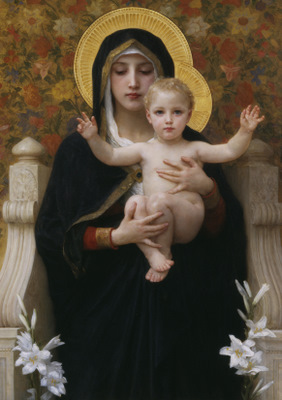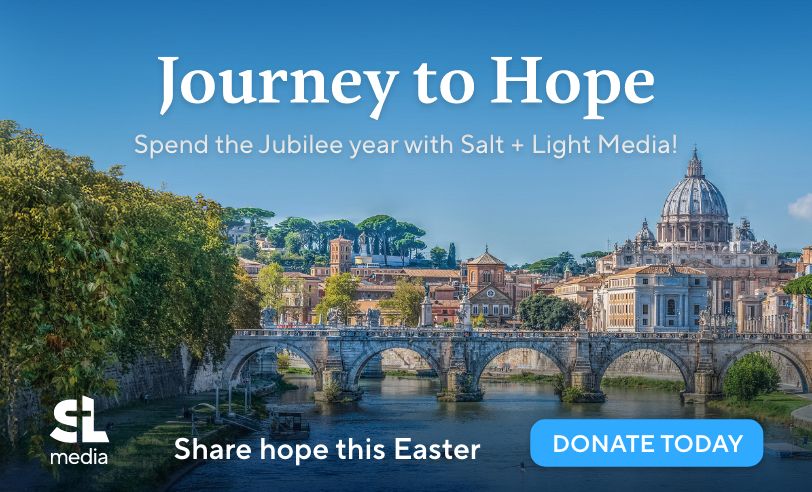

This Christmas, I want to be... (Part 2 of 2)
Mary Rose Bacani Valenti
Friday, December 31, 2010
 Last time, I talked about how a friend’s visit inspired me into the “passive active-ness” needed to prepare for God this Christmas.
But there’s someone else who inspires me. On a regular basis. A woman just like me -- Mary.
Mary makes me proud to be a woman. I feel as if I can have such an intimate relationship with God just by being a woman. Because God calls us to prepare a home for him in our lives, in our hearts, and that’s what Mary did, physically and spiritually. Pope John Paul II’s Theology of the Body explores this mystery theologically and philosophically. Philosophy professor, writer and speaker Peter Kreeft, in his 1986 article, describes Mary’s gift articulately as well:
Last time, I talked about how a friend’s visit inspired me into the “passive active-ness” needed to prepare for God this Christmas.
But there’s someone else who inspires me. On a regular basis. A woman just like me -- Mary.
Mary makes me proud to be a woman. I feel as if I can have such an intimate relationship with God just by being a woman. Because God calls us to prepare a home for him in our lives, in our hearts, and that’s what Mary did, physically and spiritually. Pope John Paul II’s Theology of the Body explores this mystery theologically and philosophically. Philosophy professor, writer and speaker Peter Kreeft, in his 1986 article, describes Mary’s gift articulately as well:
The angel said to Mary, “The Holy Spirit will come upon you and the power of the Most High will overshadow you; hence the holy offspring to be born of you will be called Son of God” (Luke 1:35). But we are addressed by the same angelic news. Our soul, like Mary’s body, is to receive God Himself if only we, like her, believe, consent and receive; if only we speak her truly magic word fiat, “let it be.” It is the creative word, the word God used to create the universe. If we speak Mary’s word, then the Word of God is born in our souls just as really as He was in Mary’s body and just as really as He is in the Eucharist. What happened in Bethlehem, what happens in our souls and what happens when we receive the Eucharist is the same event under three different modes. It is simply the most important thing that ever happened or can happen. It is the Incarnation. …… But Mary is a woman; how can a man identify with her? Because as the saints say, to God we are all feminine. Even the Latin word “soul,” anima, is feminine. Woman symbolizes the soul in its relation to God better than man does. We do not impregnate God; God impregnates us with His life. The very receptivity, the very secondness, of the feminine is thus raised to privileged status, as the Magnificat shows. The lowly, quiet, womblike, receptive power of the soul, the response to the divine husband’s initiative — this is the highest and most precious thing in us. Mary is our true self. -- Kreeft, Peter. “The Meaning of Christmas: Look Deeper.” National Catholic Register (December 1986).May all of us take Christ into our lives this Christmas, and take Mary as our primary example of how to do this. Or more specifically, how to “be” this receptacle for Christ during this Christmas season and in the new year. To read the rest of Peter Kreeft’s article, go here. - CNS photo/Jerry L. Thompson, Art Resource: Mary holds the Child Jesus in "Virgin of the Lilies" by French painter William-Adolphe Bouguereau.
Related Articles:
Category: Advent and Christmas
Tag: Christ, Christmas, prayer
Pope Francis’ Catechesis – February 19, 2025
Wednesday, February 19, 2025
 Pope Francis
Pope Francis
Pope Francis continued his cycle of catechesis on "Jesus Christ our Hope," as part of the Jubilee 2025. This week he reflected on the visit of the Magi to the infant Jesus, writing that the Magi "are men who do not stay still but, like the great chosen ones of biblical history, feel the need to move, to go forth. They are men who are able to look beyond themselves, who know how to look upwards."
Pope’s General Audience – February 12, 2025
Wednesday, February 12, 2025
 Pope Francis
Pope Francis
In his Wednesday General Audience, Pope Francis continued this cycle of catechesis on "Jesus Christ our Hope," as part of the Jubilee 2025. This week he reflected on the birth of Christ and the visit of the shepherds, saying that "God, who comes into history, does not dismantle the structures of the world, but wants to illuminate them and recreate them from within."
Pope Francis’ homily for the Solemnity of Mary, Mother of God 2025
Wednesday, January 1, 2025
 Pope Francis
Pope Francis
On January 1, 2025, Pope Francis gave the homily at Mass on the Solemnity of Mary, Mother of God in St. Peter's Basilica.
Pope Francis’ Urbi et Orbi message for Christmas 2024
Wednesday, December 25, 2024
 Pope Francis
Pope Francis
Pope Francis gave the traditional Christmas message and blessing "urbi et orbi" (to the city and to the world) from the central loggia of St. Peter's
Pope Francis’ homily for Midnight Mass 2024
Tuesday, December 24, 2024
 Pope Francis
Pope Francis
Pope Francis gave the homily at Midnight Mass, saying that "Hope is not dead; hope is alive and it embraces our lives forever. Hope does not disappoint!"
SUPPORT LABEL
$50
$100
$150
$250
OTHER AMOUNT
DONATE










